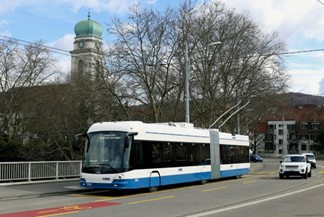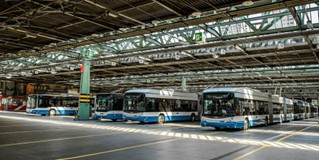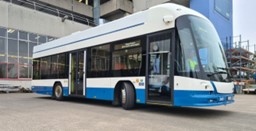- Country: Switzerland
- Sector: Buses
- Area of Action: Urban transport
- Type of service: Municipality/public service
- Power source: Electric
- Aspects described in the case study:
- Technical features of e-buses and actual developments
- Charging infrastructure construction and operation
- Digital solutions assisting the use and operation of e-buses
- Training of e-bus drivers
- Training of e-bus maintenance staff
- Eco driving
- Health and business environment of e-bus driving
CONTEXT
Zurich, a leading city in Switzerland known for its high population density and efficient public transport system, has implemented an exemplary model of technical deployment and operation of electric buses. This transition is not a pilot experience, but a full-scale implementation across the entire public transport network. The decision to electrify the bus fleet in Zurich responds to its commitment to environmental sustainability, seeking to reduce greenhouse gas emissions and improve urban air quality. This proactive approach underscores Zurich’s willingness to adopt advanced technologies to promote a cleaner and more sustainable urban environment.

THE PROCESS
● Planning and Investment: Zurich began the process with detailed planning that included assessing the technical and economic feasibility of the transition to electric buses. Extensive studies were conducted to determine the number of vehicles needed, optimal routes and strategic charging points. The city also made a significant investment in infrastructure and electric vehicles to ensure a smooth implementation.
● Infrastructure Development: Extensive infrastructure development was undertaken to support the operation of electric buses. This included the installation of fast and slow charging stations along bus routes, ensuring that vehicles could be charged efficiently during daily operations.
● Technology Integration: Zurich focused on technology integration to ensure optimal operation of the electric buses. This involved collaborating with bus manufacturers and technology providers to implement advanced fleet management systems, performance monitoring and predictive maintenance.
● Training Programs: Comprehensive training programs were implemented for drivers and maintenance personnel. These programs ranged from the safe operation of electric vehicles to understanding battery technology and charging procedures, ensuring that personnel were prepared to effectively operate and maintain the new buses.
● Awareness Campaigns: Zurich launched extensive public awareness campaigns to promote the environmental benefits of electric buses and encourage their use. These educational campaigns were key to increasing public acceptance and promoting behavioural change towards more sustainable transportation options.

IMPACT
- Environmental Benefits: The transition to electric buses has meant a notable reduction in emissions of greenhouse gasses and local pollutants such as nitrogen oxides and fine particulate matter, thus improving urban air quality.
- Operational Efficiency: Electric buses have proven to be as efficient or more efficient than their diesel counterparts in terms of operating and maintenance costs, contributing to more sustainable financial management for Zurich.
- Public Health: Improved air quality from electric buses has had a positive impact on public health, reducing cases of respiratory illnesses and improving the overall well-being of urban residents.
- Economic Growth: Investment in green technology and related infrastructure has stimulated local economic growth, creating new jobs in sectors such as electric bus manufacturing and the installation of charging infrastructure.
- Training and Skills Development: The training programs implemented have not only improved the skills of personnel involved in the operation of electric buses, but have also contributed to the development of a workforce skilled in clean and sustainable technologies for the future.
MORE INFORMATION
During the case study on the implementation of electric buses in Zurich, favorable local and national policies supporting the adoption of clean technologies are highlighted. However, significant challenges have been identified such as the need for adequate charging infrastructure and managing the technology transition in a dense urban environment. Cooperation between the public and private sector, along with the active participation of bus manufacturers and technology providers, has been crucial. In addition, ongoing education and awareness campaigns have played a key role in public acceptance and commitment to sustainability.During the case study on the implementation of electric buses in Zurich, favorable local and national policies supporting the adoption of clean technologies are highlighted. However, significant challenges have been identified such as the need for adequate charging infrastructure and managing the technology transition in a dense urban environment. Cooperation between the public and private sector, along with the active participation of bus manufacturers and technology providers, has been crucial. In addition, ongoing education and awareness campaigns have played a key role in public acceptance and commitment to sustainability.

MULTIMEDIA
Sources:
Videos:
Relevant links:
